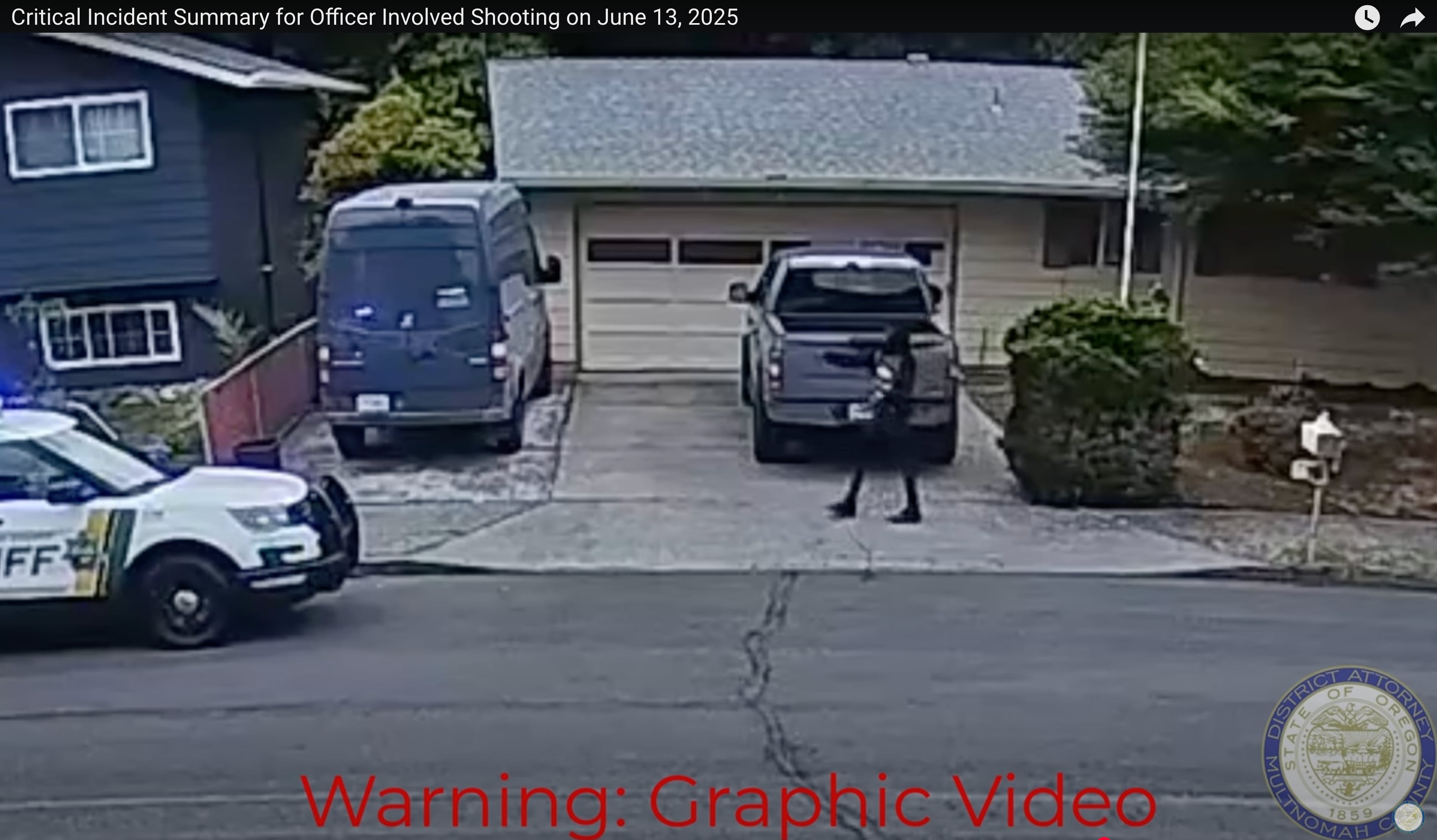

Published on: 07/14/2025
This news was posted by Oregon Today News
Description
Multnomah County District Attorney Nathan Vasquez made a rare decision for his office in late June. He found a recent, fatal police shooting was justified without first convening a grand jury.
A pair of civil rights attorneys – echoed by a Portland city councilor – criticized the move as cutting out an important step of public involvement in holding police accountable and instilling trust in law enforcement.

Rank-and-file police officer unions are now weighing in and saying Vasquez’s shift is a correction of past policies that were overly deferential to grand juries. Vasquez’s predecessors have relied on grand juries in most — if not all — fatal shootings
“I think there’s still counties that are putting every shooting before a grand jury, and I think it’s inappropriate,” said Dan Thenell, an attorney who works with police unions in Oregon and Washington.
On June 13, Multnomah County Deputy Adam Suboh joined several other law enforcement officers in dispatching to Northeast Glisan Street and 162nd Avenue. Witnesses reported Ladarius Collins threatened to kill his brother, holding a gun to his head at one point.
Collins led officers on a short footchase when they arrived. When Suboh arrived in his patrol car, video footage showed Collins walk toward him and aim the handgun at him. Suboh fired six times, killing Collins. Vasquez ruled the shooting was justified on June 27.
Suboh remains on administrative leave, Multnomah County Sheriff’s Office spokespeople said Monday.
Vasquez announced June 30 that a separate shooting had been justified – after he convened a grand jury. In that case, a grand jury found Officer Andrew Young was justified in shooting a man with a .22 caliber rifle who had been threatening others in his Southeast Portland apartment building.
The difference in the two cases, according to Vasquez’s office, is that one had more evidence than the other.
“There was a question about a key fact that needed to be reviewed by the grand jury,” spokesperson Pat Dooris said. “Why did the officer fire his weapon at that moment?”
Oregon law does not require a grand jury to be impaneled. It only requires a district attorney to have a policy for how they’ll deal with deadly force when it occurs. Vasquez’s written policy is no different than his predecessor’s.
Thenell applauded Vasquez for using his discretion. The police attorney told OPB that prosecutors are ducking responsibility when they defer to grand juries as a blanket policy.
“I think it’s because prosecutors don’t want to make tough decisions,” Thenell said.
Aaron Schmautz, president of the Portland Police Association, noted that always impaneling grand juries can keep law enforcement officers off the job for months on end.
Schmautz noted that grand juries should be convened based on the evidence at hand. Young’s case lacked as much video as Suboh’s, he said.
“The simple fact that one goes to a grand jury and one doesn’t does not necessarily mean there’s a different level of concern. There’s a different level of information,” Schmautz said.
Vasquez’s decision came at a time when public concern with police accountability has waned as a top priority.
While the 2020 murder of George Floyd by a Minneapolis police officer ignited thousands of protests across the country and led many states to revise how they investigate deadly force, legislatures in Oregon and Washington have notably put forth fewer bills in recent years addressing that issue.
Vasquez’s predecessor, former District Attorney Mike Schmidt, had relied on grand juries in most fatal police shootings.
“It made Portland and the county a little bit of an outlier,” said Mike Gennaco, whose California firm OIR Group analyzes police policies up and down the West Coast.
Gennaco, who has reviewed more than 600 police shootings in the past two decades, said he saw some advantages to regularly calling grand juries. He noted it was important to see officers testify and for the public to be able to read those transcripts.
The goal is public trust, he said. But he wasn’t aware of a city or county with a process that leaves everyone satisfied, even where grand juries happen frequently.
“The magic formula has not been reached,” Gennaco said. “There are some that are not going to be confident with whoever the decision-maker is, whether it’s at the prosecutor level or the grand jury.”
Still, places outside of Oregon are experimenting with other methods to build public trust in the process. One new law in California requires the state attorney general to review all cases of police shootings where the person shot was unarmed.
In Washington state, an Office of Independent Investigations – run by a governor appointee – can take jurisdiction over deadly force investigations. Those investigators still leave decisions over whether a shooting was justified to the local prosecutor, however.
Prosecutors are being more open about their decision-making processes, too, Gennaco said.
“It used to be a one- or two- or three-sentence (statement). But now they’re very detailed,” Gennaco said. “That doesn’t mean that people don’t disagree with them, but at least we’ve got the detail we didn’t have before.”
When Vasquez announced his decision around Suboh, he included a lengthy memo that detailed how prosecutors analyzed the Multnomah County deputy’s decision.
“I think it’s important for that analysis to be out there,” Gennaco said. “Even on cases that aren’t close calls.”
News Source : https://www.opb.org/article/2025/07/14/oregon-police-unions-endorse-flexible-shooting-review-process/
Other Related News
07/15/2025
Providers say after-school programs and other services for the coming school year are thre...
07/15/2025
Dear Eric My wife and I have been married for about 10 years We both love each other very ...
07/15/2025
DEAR ABBY I am remarried to a widower whose first wife died 10 years ago On the anniversar...
07/15/2025
Despite pushback from neighbors city officials say they are still on track to open the she...
07/15/2025











